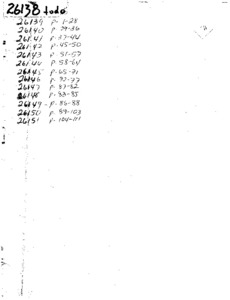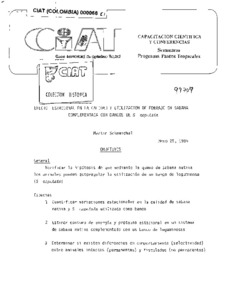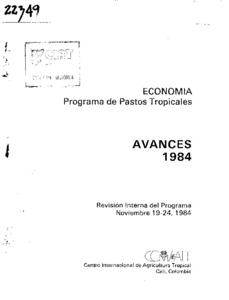Mission
To reduce hunger and poverty, and improve human nutrition in the tropics through research aimed at increasing the eco-efficiency of agriculture.
People
CIAT’s staff includes about 200 scientists. Supported by a wide array of donors, the Center collaborates with hundreds of partners to conduct high-quality research and translate the results into development impact. A Board of Trustees provides oversight of CIAT’s research and financial management.
Values
- Shared organizational ethic
- We respect each other, our partners, and the people who benefit from our work. We act with honesty, integrity, transparency, and environmental responsibility in all of our joint endeavors.
- Learning through partnerships
- We work efficiently and pragmatically together and with partners. Considering our diversity to be a key asset, we adapt readily to change and strive to improve our performance through continuous learning.
- Innovation for impact
- We develop innovative solutions to important challenges in tropical agriculture, resulting in major benefits for the people who support, participate in, and profit from our work.
Members:
Resources
Displaying 836 - 840 of 958Plan piloto para el desarrollo agro-industrial del cultivo de la yuca en algunos departamentos de la Costa Atlantica de Colombia : Tercer informe junio 1983-junio 1984
The 1st yr of operation (1983-84) of 6 cassava natural drying plants, established in some states of the Colombian Atlantic Coast as a result of the successful operation of the Betulia pilot plant (Sucre) established in 1981, is reported. Under the present production and commercialization conditions, the natural drying process of cassava proved to be an economically profitable activity in the region; however, it was sensitive to fresh root price and the degree of drying plant occupation. The major constraint to increased cassava yields is the lack of programs to produce healthy seed.
La competencia por la tierra entre la agricultura y la ganaderia en el minifundio costeno
The results of a case study conducted in Betulia (Sucre, Colombia) in May-Dec. 1983 to evaluate the competition for land between cassava cultivation (monocropped or in association with maize or yam) and cattle raising are discussed. In general, profits from cassava either in association or in monoculture are much higher than for cattle raising. Regarding labor requirements, cassava cultivation and cattle raising are equally attractive from an economic viewpoint.






